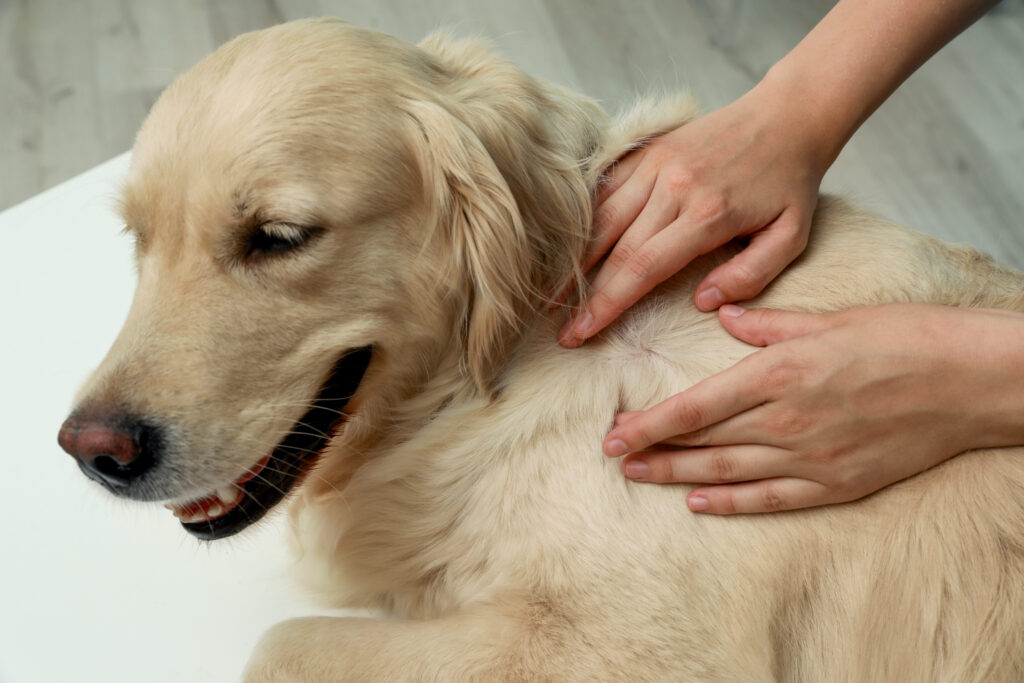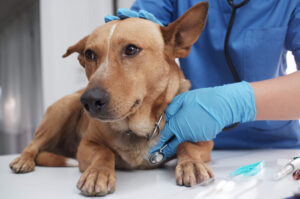When you bring your dog in for vaccinations, it’s a step toward safeguarding against disease and ensuring their health. But there might be a time when you notice a lump at the vaccination site and wonder if it’s normal. Here we will shed light on what a “dog vaccine lump” is, why it happens, and whether you should be concerned. If you’re looking for more detailed information about pet care or have specific questions, feel free to reach out to Loveland Regional Animal Hospital in Loveland, OH. You can call us at (513) 697-9796 or request an appointment to see your vet.
What are Dog Vaccine Lumps?
After your dog gets a vaccine, they might develop a small lump at the injection site. This is typically a normal response of your dog’s body to the vaccine. Think of it as your pet’s immune system getting to work. These lumps are often small and firm and can be felt under the skin.
But why does this happen? Vaccines contain ingredients that stimulate your dog’s immune system. When the vaccine is injected, it can cause inflammation around the injection site as the body reacts to these ingredients. This inflammation can then lead to the formation of a lump.
When to Monitor and When to Worry
A normal vaccine lump should be small, and your dog may not even notice it’s there. These lumps usually disappear on their own within a few weeks without causing any discomfort.
If you discover a vaccine lump on your dog, keep an eye on it. If it stays the same size, doesn’t seem to bother your dog, and starts to get smaller over time, it’s likely just the result of a normal vaccine reaction.
However, if the lump grows, lasts longer than a month, or seems to be causing pain or discomfort to your dog, it’s time to call Loveland Regional Animal Hospital. Persistent or growing lumps should be checked to ensure they’re not something more serious.
Preventative Measures and Post-Vaccination Care
When you’re planning to get your dog vaccinated, talk to your vet about any concerns you might have. We’ll be happy to tell you what to expect after vaccination and how to prepare your dog.
After vaccination, monitor the injection site for any changes. Keep the area clean and avoid touching or pressing it too much. Ensure your dog has a comfortable place to rest and watch for any unusual behavior or symptoms.
Other Possible Reactions to Vaccines
Besides lumps, dogs can have other mild reactions to vaccines, like slight fever, lethargy, or reduced appetite. These usually resolve without them needing any treatment.
In rare cases, dogs might have a serious reaction to a vaccine. This could include severe swelling, difficulty breathing, or hives. If you notice these symptoms, contact Loveland Regional Animal Hospital immediately.
Your Pet’s Health Starts with You
As a pet owner, keeping a close watch on your dog’s health is important. Watch for any changes in their behavior or physical condition, especially right after they’re vaccinated. Vaccines are a critical part of your dog’s health care, and understanding how your dog reacts to them is just as important. While a small lump can be a normal response, knowing when to be concerned is key to keeping your dog healthy.
If you’re ever in doubt about your dog’s health, don’t wait. Call us at (513) 697-9796 for advice or to book an appointment. Our team at Loveland Regional Animal Hospital is here to support you and your dog for a lifetime.





